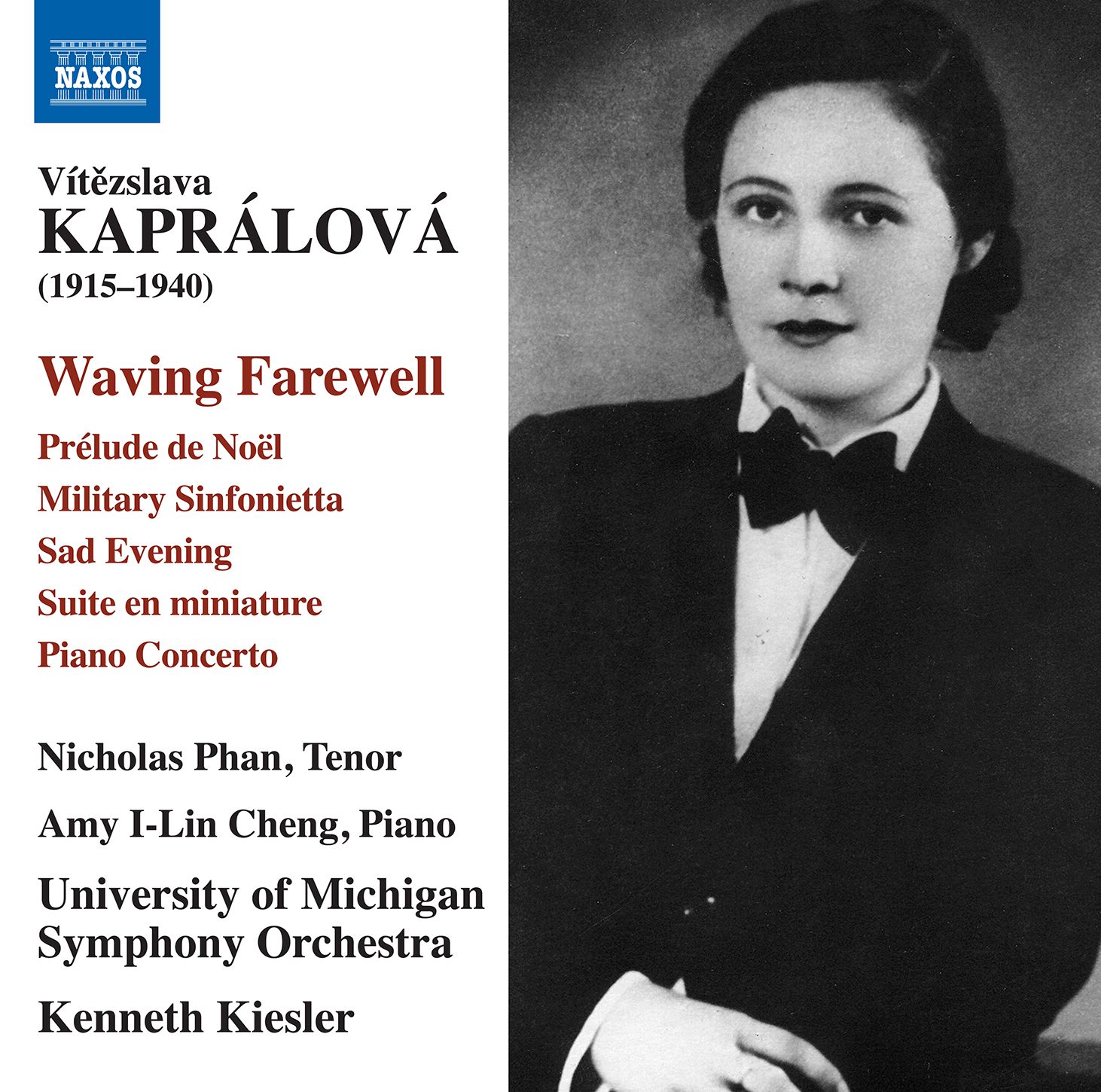The Vibrant Music of Vítězslava Kaprálová

There is little doubt that Vítězslava Kaprálová's early death at the age of 25 robbed the musical world of a potent force. Her work list only constitutes around 50 pieces, but the more I hear the more I want to hear ... and the present disc, recorded at the Kaprálová Festival in Michigan, fits the bill very nicely.
I first came across Vítězslava Kaprálová's music, unsurprisingly, on the Czech label Supraphon - a radiant disc of songs with soprano Daba Burešová; a mixed repertoire portrait disc on Studio Matouš sealed the deal.
Kaprálová came to the notice of the international community with her Military Sinfonietta. She was the first woman to conduct the Czech Philharmonic and BBC Symphony orchestras. Her father, Václav Kaprá, was a pupil of Janáček; she herself studied under Vítězslav Novák at Prague and Martinů in Paris.
The present performances come from the largest festival fo Kaprálová's music in the world, and it is great that these performances have been set down for
The Vánoční Preludium (also "Prélude de Noël" or Christmas Prelude) is a two minute explosion of bustling excitement. Kaprálová's music is sometimes labeled 'Stravinskian'; small wonder with, in this performance, the clear Pétrushka vibe of the opening:
Always nice to have a bit of Christmas in July - here is an alternative performance, this time with a drawing of a snowman. Jan Kučera conducts the Czech Radio Orchestra in this 2009 performance which, despite its indigenous performers, doesn't quite hit the mark in the same way as the new recording and which certainly is less Stravinskian:
Great though it is to have that fun, one of the meatier pieces follows, the Military Sinfonietta (1936/7). The premiere of this work marked the first appearance of a lady conductor with the Czech Philharmonic. The terrain here is more varied, and massively inventive. Kaprálová's writing is buoyant, expert and utterly remarkable, and tyher performance by the University of Michigan Symphony under Kenneth Kiesler is certainly enthusiastic, and moves with quixotic reflexes to honour the composer's way of flitting rapidly from one emotion to the next:
The ecstatic writing of Smutný večer (Sad Evening, c. 1936) whether in the luminosity of thewood wind chords or the glowing climax really seems to refer to the music of Alexander Zemlinsky. The reconstruction is by Timothy Cheek; text Vítězslav Nezval.
The next song, Sbohem a Sáteček ("Waving farewell" 1938), was the poet Nezval's farewell to France, while for Kaprálová it was her farewell to Prague before she set off to Paris. It is fragrantly scored and poignant. In both songs, Nicholas Phan is a brilliant soloist (tenor);
Nicholas Phan's disc Gods and Monsters, incidentally, is a corker (link below).
Nice to have Kaprálová's Op. 1 here, a Suite en miniature (1935), four very short movements that include a delicate Lullaby ('Ukolébavka') full of pastoral woodwind pipings:
The Piano Concerto, Kaprálová's first large-scale orchestral work (1935), is definitely late Romantic in style but has her own accent; the piano's glissando at the end of the first movement speaks of an irrepressibel spirit, for example. The music's moods are positively kaleidoscopic, perhaps reflecting the words of the great pianist Rudcolf Firkusný:
Her music seems to speak to everyone in the same language, but people who knew her personally would perhaps understand a little more. Vítka's persionality was unpredictable, like the weather of home in the month of April. We never know how she would be: sometimes very happy, funny, and full of life, and sometimes, on the contrary, quite serious.
The happy side of that personality certainly comes across in the helter-skelter finale, whose opening transforms to a meltingly beautiful passage including solo violin, rounding off a fabulous disc. Taiwanese pianist Amy I-Lin Cheng is the brilliant soloist, while Kenneth Kiesler here, as throughout the disc, leads his forces with conviction and accuracy:
